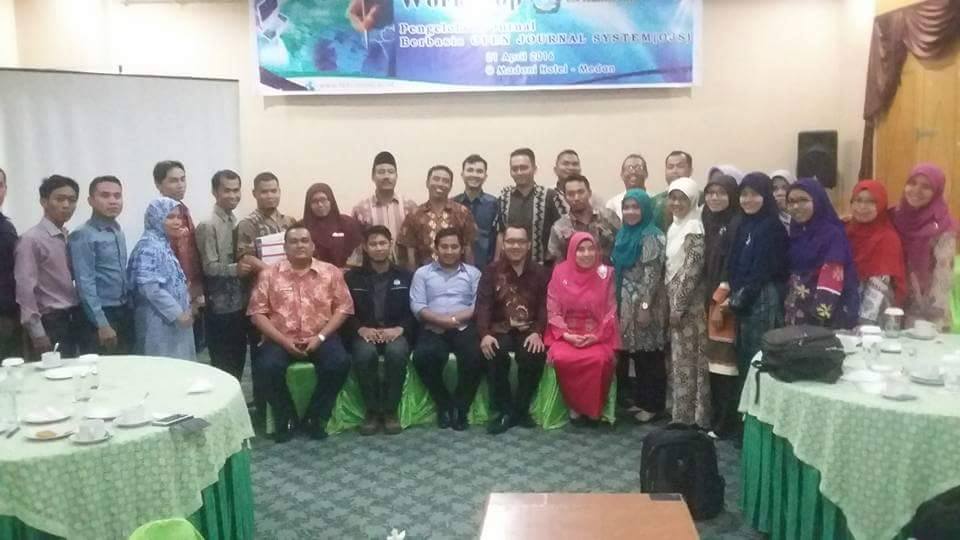ANALISIS IMPLEMETASI KAJIAN ISLAM TERKAIT AL-’AMAL WA AL-SANA’ DALAM BERDAGANG
Abstract
Keywords
Full Text:
PDFReferences
Al-Jaza’iri, A. B. (2003). Aysar al-Tafasir li Kallam al-’Ali al-Kabir. Maktabah al-’Ulum wa al-Hukm.
Al-Qarni, ’Aidh. (2008). Tafsir al-Muyassar. Qisthi Press.
Al-Syaukani. (2003). Fath Al-Qadir (Vol. 1). Dar AL-Kutub Al-Ilmiyyah.
As-Suyuthi, J., & Al-Mahally, J. M. I. A. (2015). Tafsir Al-Jalalain. Tafsir Jalalain (Terjemah).
Baydawi, A. A. ibn U. (2010). Anwār al-Tanzīl wa-Asrār al-Tāwīl. In Anwār al-Tanzīl wa-Asrār al-Tāwīl. https://doi.org/10.31826/9781463225100
Bustanuddin Agus. (2006). Islam dan Ekonomi: Suatu Tinjauan Sosiologi Agama. Universitas Andalas Press.
Creswell, J. W. (2014). Research Design: Qualitative, Quantitative, and Mixed Methods Approaches. SAGE Publications.
Dwi Suwiknyo. (2010). Ayat-Ayat Ekonomi Islam. Pustaka Pelajar.
Faisal, M. (2020). Pendekatan Tafsir Maudhu’I Dalam Metode Dakwah. At-Tanzir: Jurnal Ilmiah Prodi Komunikasi Penyiaran Islam, 156. https://doi.org/10.47498/tanzir.v11i1.356
Hamka. (1983). Tafsir al-Azhar. Pustaka Panjimas.
Hasan Shadily, et. a. (n.d.). Ensiklopedi Indonesia (Jilid 3). Ichtiar Baru-Van Hoeve dan Elsevier Publishing Project.
Jabir bin Ahmad Al-Haristsi. (2006). Fikih Ekonomi Umar bin Khattab, terj. Asmuni Solihan Zamakhsyari. Khalifah.
Jalaluddin Rahman. (1992). Konsep Perbuatan Manusia Menurut Al-Qur’an: Suatu Kajian Tafsir Tematik. Bulan Bintang.
Katsir, I. (1999). Tafsir al-Quran al-Adzim. In 2.
Krippendorff, K. (2022). Content Analysis: An Introduction to Its Methodology. In Content Analysis: An Introduction to Its Methodology. https://doi.org/10.4135/9781071878781
M. A. Mannan. (1995). Teori dan Peraktik Ekonomi Islam. Dana Bakti Wakaf.
M.Ismail Yusanto dan M.Karebet Widjajakusuma. (2002). Menggagas Bisnis Islami. Gema Insani Pers.
Maraghi, M. M. (1910). Tafsir al-Maraghi. Dar al-Fikr.
Muhammad Al-Ghazali. (2003). Menikmati Jamuan Allah (Nahwa Tafsir Maudhu’i li Suwar Al-Qur’an). Serambi.
Muhammad Ali As-Sais. (n.d.). Tafsir Ayat al-Ahkam (Juz II).
Muhammad Fethullah Gulen. (2011). Cahaya Al-Qur’an Bagi Seluruh Makhuk. Republika.
Qardhawi, Y. (2016). Norma dan Etika Ekonomi Islam. In Gema Insani.
Qurtubi, A. A. A. M. A. (2002). al-Jami’ Li Ahkam al-Qur’an. Dar al-Kutub al-’Ilmiyah.
Ramdani Harahap, S. A., Azmi, M. U., & Syamsuri, S. (2021). Pembangunan Ekonomi Islam Melalui Peran Sumber Daya Manusia. Al-Mustashfa: Jurnal Penelitian Hukum Ekonomi Syariah, 6(1). https://doi.org/10.24235/jm.v6i1.7305
Redi Panuju. (1995). Etika Bisnis:Tinjauan Empiris dan Kiat Mengembangkan Bisnis Sehat. Grassindo.
Rorong, M. J. (2019). Penempatan Teori Dalam Ilmu Komunikasi. Commed : Jurnal Komunikasi Dan Media, 4(1), 90–107. https://doi.org/10.33884/commed.v4i1.1417
Shihab, M. Q. (2004). Tafsir al-Mishbah (2nd ed.). Lentera Hati.
Taqyuddin An-Nabhani. (1990). Membangun Sistem Ekonomi Alternatif: Perspektif Islam. Risalah Gusti.
Tarigan, A. A. (2012). Tafsir Ayat-Ayat Ekonomi Al-Qur’an.
Zulheldi, M. A. (2018). 6 Langkah Metode Tafsir Maudhu’i. In International Journal of Physiology (Vol. 6, Issue 1).
DOI: http://dx.doi.org/10.30829/hf.v10i1.14729
Refbacks
- There are currently no refbacks.
Indexed by:



_-_Copy3.png)














